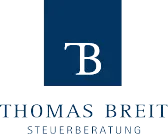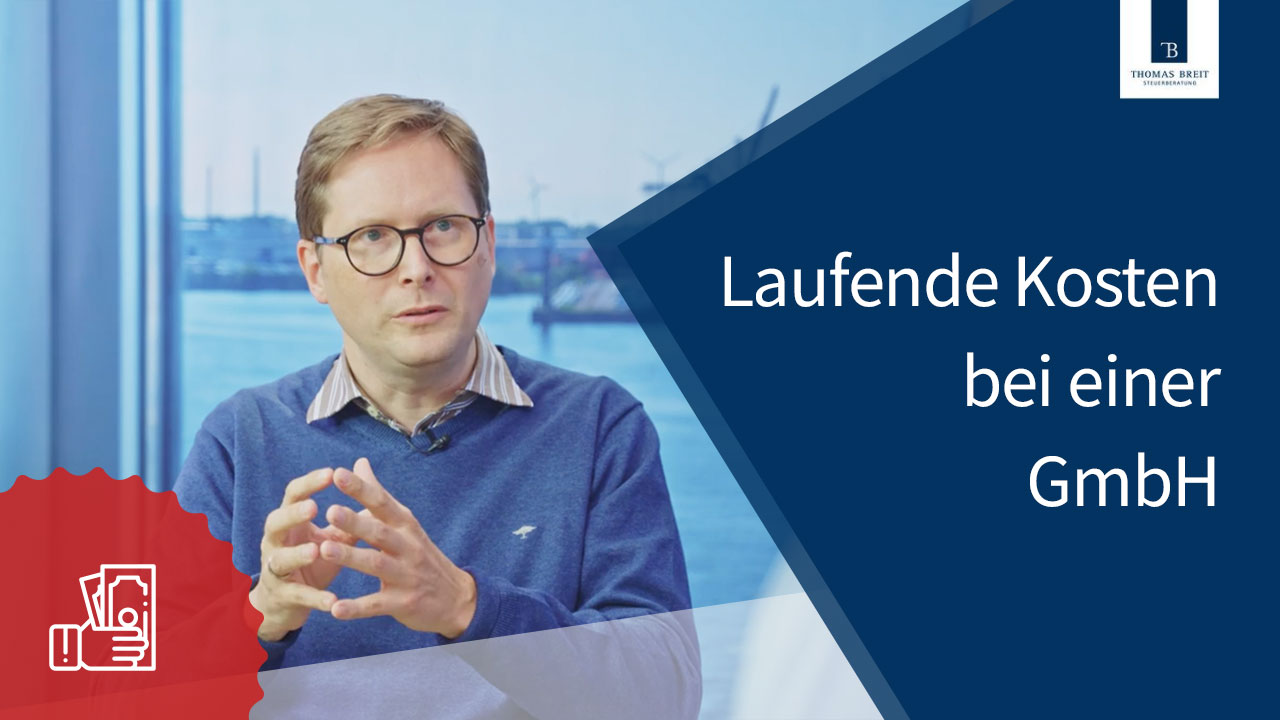Are you a sole proprietor or the majority partner in a general (OHG) or limited partnership (KG)? Have you been considering changing the legal form of your business to a GmbH, but do not know what recurring costs to expect?
Does this raise doubts or concerns that all the advantages of a GmbH could be “eaten up” by the increased cost of preparing annual financial statements and tax returns?
As a tax consultant in Hamburg, I can tell you that this is one of the greatest concerns of my clients in connection with company transformation.
Entrepreneurs often know about the advantages of a GmbH, like the limitation of liability and the effect on the company image. However, most entrepreneurs do not know what recurring cost to expect after transforming their company into a GmbH.
This blog will explain in easy words how the recurring costs of a GmbH and sole proprietorships or partnerships differ and why a company transformation may be worth while for you despite the higher cost.
Why should I convert my business as a GmbH in the first place?
The liability is limited to the capital contribution: If the worst comes to the worst, you as a sole proprietor or partner in a partnership are liable to an unlimited extent with your private property. In a GmbH, in turn, you are only liable up to the amount of your capital contribution,
meaning that a corporate transformation will reduce your personal risk.
A GmbH allows for more efficient tax structuring: In contrast to partnerships and sole proprietorships, the GmbH itself is subject to tax, which means that you have more possibilities when it comes to tax structuring. Larger companies might even want to consider setting up a holding structure.
I have prepared a separate comprehensive blog that contains everything you need to know about holdings, which is available here: https://www.steuerberatung-breit.de/en/holdings-when-are-they-an-advantage-and-when-do-they-pose-a-risk-for-limited-liability-companies/
GmbHs have a better image than other legal forms: As you need a minimum share capital of EUR 25,000 to incorporate a GmbH, you are automatically considered more reputable than sole proprietors or partnerships that only require seed capital of EUR 1.
With a high equity base, you will be perceived as a “seasoned entrepreneur” and enjoy more trust with customers, suppliers and banks.
Company succession is easier to organize: A GmbH offers excellent possibilities if you want to pass your business on to your children or another successor. You can lay down all the issues that are relevant to the company succession in the articles of association.
This way, you are prepared and set to avoid disputes later on.
Comparison of recurring costs of sole proprietorships, KG limited partnerships and GmbHs
Rule of thumb: The recurring cost of a GmbH is about 30% higher than the cost of a sole proprietorship or a partnership like a KG.
The reason: GmbHs are subject to stricter bookkeeping and accounting regulations than sole proprietors or partnerships.
These obligations, including the obligation to prepare annual financial statements, incur more administrative work and higher costs.
Most likely, it will not be economical for you to do this work yourself. You will have to hire and pay a tax consultant.
The higher tax consultancy costs in a GmbH can roughly be broken down into the following three areas:
1. Tax returns (especially for freelancers)
A GmbH is subject to more legal requirements than a sole proprietorship or partnership. In a GmbH, you are obliged to file returns for the following taxes.
- Trade tax
- Corporation tax
- VAT
- Private income tax of the shareholders
If, however, your freelance activities take the form of a sole proprietorship (e.g. tax consultant, architect or lawyer), you do not need to consider trade tax or corporation tax.
In this case, you only prepare tax returns for VAT and income tax.
Therefore, for freelancers, a change of legal form to GmbH will entail a relatively steep cost increase in the cost of preparing tax returns.
2. Accounting
GmbHs are obliged to apply double-entry accounting.
This entails more work than the net income method applied by most sole proprietorships and partnerships.
Your tax consultant will need more time for double-entry accounting and therefore charge a higher fee.
3. Annual financial statements
In addition to preparing a balance sheet and profit and loss account, a GmbH needs to prepare notes to the financial statements that include more specific explanations regarding certain items in the balance sheet. The notes, for instance, detail which valuation methods were applied and how assets are amortized and depreciated.
Large GmbHs with annual revenue of at least EUR 40 million (as per Section 267 (2) German Commercial Code (HGB)) are additionally obliged to publish a management report. This report describes the current position of the company and its future risks and opportunities.
Note: In addition to these legal requirements, your annual revenue and total assets also influence the recurring cost,
as your tax consultant will use these two figures to determine your fee. The higher the balance sheet total and your annual revenue, the higher the fee.
Conclusion: GmbHs are more expensive than other legal forms, but offer many advantages
The recurring cost of a GmbH is about 30% higher than the cost of a sole proprietorship or a partnership. These higher costs are incurred by legal requirements in connection with annual financial statements, accounting and tax returns.
Your annual revenue and balance sheet total also play a role: the higher the two items, the higher the tax consultant’s fee.
However, these higher costs come with many advantages:
- Image boost with customers, suppliers and other business partners
- Your liability is limited to the capital contribution
- You have more possibilities for tax structuring
- It is easier to contractually organize company succession
In the end, it is up to you to decide whether these advantages justify the higher running costs.
If you are unsure, a tax consultant can help analyze your situation and tell whether transforming your business into a GmbH will pay off.
If you have additional questions on the recurring cost of a GmbH after reading this blog or if you would like to find out whether corporate transformation is the right option for you, please feel free to contact me.
You can contact me any time via my contact form.
I am specialized in corporate transformation and would be happy to help you.
Kind regards,
Thomas Breit
Photo: © Elnur – stock.adobe.com




